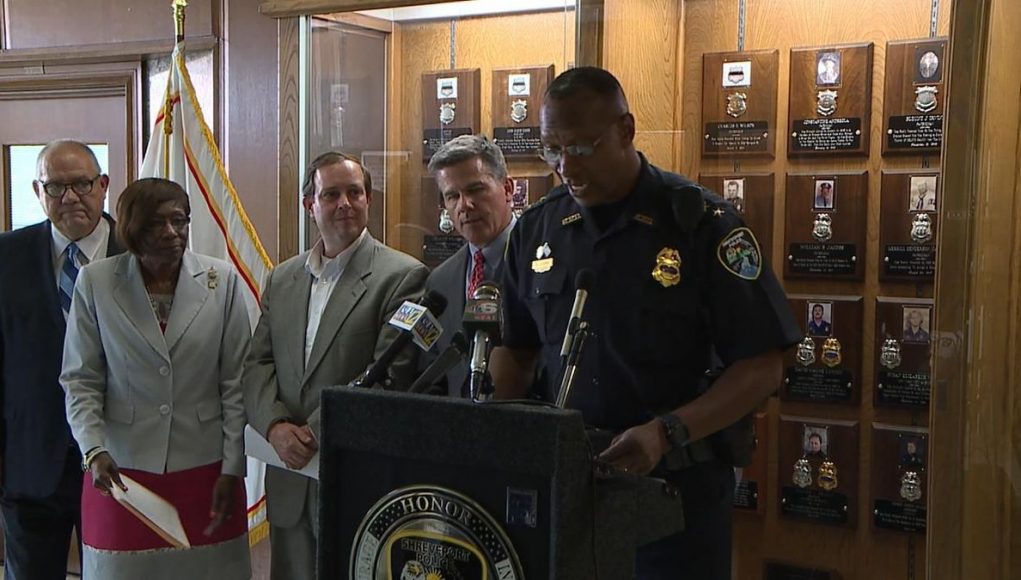Back in August 2017, during a press conference on crime, the mayor made the mistake of not knowing the executive director of Crime Stoppers. The most awkward part of the whole press conference, however, isn’t what was done or said, but what went unsaid: Shreveport is fertile ground for crime because of economic decline, population backslide, and a poor education system.
I was hoping the administration would come around to this important part of the equation at some point, but it is apparent that – after several press releases, briefings, and city council appearances – it has chosen not to address this issue in its public discourse about crime in our community. At the press conference, it also appeared that no present local media was willing to call out the elephant in the room and connect Shreveport’s crime increase with the obvious and plain reality of our city’s decline.
Heliopolis contributor Anton Winder wrote an eye-opening article about the statistics around Shreveport’s rise in crime, so I won’t rehash what he’s already done – read his article here. Instead, I want to take some time providing a bird’s eye view of the city’s issues regarding how crime relates to economics and education.
First, Shreveport is shrinking in population. The headcount for Shreveport proper was 200,714 in 2000. The next full census was in 2010 and that clocked in at 199,311. This count turned out to be a propped up by the boom in the Haynesville Shale which continued to boost the number after the recession with gas field workers until the drilling lease obligations were filled between 2008 and 2013. The permanent population, however, was still dropping. The U.S. Census Bureau released new estimates for 2016 that put us at 194,920. One thing is clear, the 2020 census, which will reflect a more accurate drop in population, will show the city in further decline. This will not appeal to big commercial companies or potential residents. It will appeal to certain companies that aim to take advantage of our decline and city government desperation, but that’s another article.
Even as the population declines, a closer look at the numbers reveals that the population is only decreasing in one demographic. From 2000 to 2010, the decrease in Shreveport is composed entirely of white people. Every other demographic is on the rise – Native American, Asian, Pacific Islanders, black people, and others. Between the two census roll calls, well over 11,000 white Shreveporters left while the non-white population rose over 10,000. At the same time, Bossier has been on the rise, driven at least in part by white flight from Shreveport, increasing from 56,492 to 62,004 and now 68,485.
The reasons people are leaving are obvious: The city’s economy has not only stagnated but has been sliding back since 2011, going from a GDP of 23.5 billion and dropping 10% to 21.2 billion in 2015. Although our population has declined only 2.5% from 2010 to estimates in 2016, the local economy fell at five times that rate over nearly the same period of time. The national GDP average has gone up by over 8% and Louisiana has dropped by 1.7% while this occurred. This continues without mentioning the compounding effect that crime and education have on people leaving, which are both a result of economic factors that started with them in the first place.

Shreveport has always depended on big, monolithic industries to provide gainful employment – the oil and gas industry, manufacturing – which in turn supported small businesses, restaurants, hotels, entertainment, the arts, etc. But as the information economy has risen in the U.S. and now globally, Shreveport has failed to keep up with the times, as evidenced by our leadership’s (lack of) focus on the areas most in need of attention (science, technology, engineering, and mathematics – aka STEM). To the City of Shreveport, these industries are simply novelties to tinker with instead of the robust, global juggernauts they really are. And yes, Caddo Parish Schools aren’t run by the city, but the city is the economic leader in the parish and the city’s mayor is supposed to be the visionary who turns the ship with or into the wind as needed.
We need to face the facts. Shreveport is no longer a manufacturing town, just as America is no longer the manufacturing country it once was. Gone are the days of manufacturing employing ten thousand plus local workers. Even when manufacturing does surface, it’s not the job creator it once was. We need to let it go and stop romanticizing the idea of getting a huge plant with thousands of direct jobs as the silver bullet to our problems. The same goes for pie in the sky developments such as the claim of a billion dollar Cross Bayou project that simply move the pieces around the board rather than creating real jobs and empowering local employers.
On top of this, oil and gas prices – a historic driver of jobs in our community – are inherently volatile due to their fungible nature. Even multinational corporations like Shell Oil Company are planning on oil staying “lower forever” and have opted to begin rapidly ramping up investment in new energy technologies instead of simply holding onto fossil energy. That’s bad news for a town where oil and gas have been the principal cause for our booms and busts over the last 40 years. It is troubling that Shreveport leadership has chosen to ignore the reality of the world today and failed to adapt. We sometimes joke about how Shreveport is behind the times with things like Lyft/Uber, but really we are way, way behind in places that matter more than rideshare.
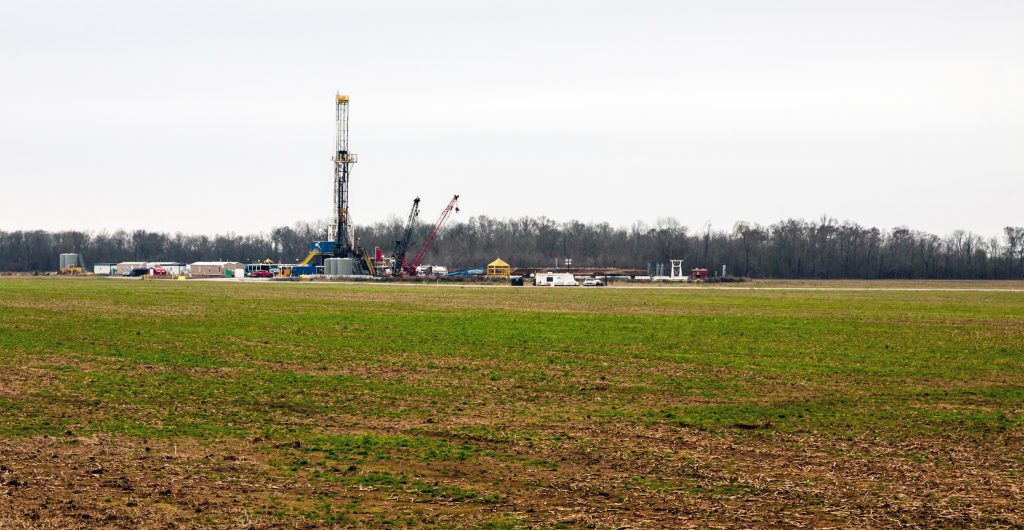
Over the years, Shreveport has had numerous opportunities to get out of this cycle but has opted to stay the course of big, expensive developments, pushing all the chips to the center of the table when holding no cards of value. What we should have been doing over the last 30 years is working out, figuratively, our muscles (local businesses, particularly service industries) and trimming the fat (debt/liabilities). We’ve even had this opportunity in the last ten years during the Haynesville Shale explosion and film industry boom of the late 2000’s. Shreveport doubled down by trying to attract more films, more shale development, manufacturing plants, and a basketball arena while neglecting the temporary boost the transient industries of the past provided. Shreveport had a great opportunity to build local businesses, community, and culture as a foundation on which big employers could stand, but we didn’t then and we aren’t doing it now.
So what does all this have to do with crime? Frankly, just about everything. The United Nations Office on Drugs and Crime (UNODC) released a report in 2012 that concluded:
…during periods of economic stress, the incidence of robbery may double, and homicide and motor vehicle theft also increase.”
Sound familiar?
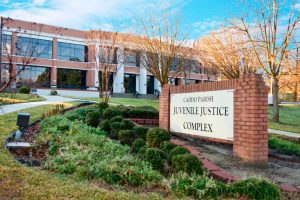
However, the economy is only part of the equation. Education needs serious attention too. Success in education is fed by an array of economic inputs – from tax dollars to the kinds of compensation and schedules students’ parents have. A study by the Center for Labor Market Studies in Boston concluded that 16-24-year-old high school dropouts were sixty-three times more likely to be institutionalized than those with a bachelor’s degree or higher. Young black men that drop out of high school are jailed at a rate of 22% daily. Not only that, but this research showed the average high school dropout will cost taxpayers over $292,000 in economic activity and the associated tax revenues PER INCARCERATED PERSON, higher cash, and in-kind transfer costs, and imposed incarceration costs relative to an average high school graduate.
Caddo Parish Schools have a graduation rate of around 75% or lower. With an enrollment north of 40,000 students, that means 10,000 of the students currently enrolled will not graduate. Running the math on that lower tax revenue number from above, this means every decade or so, Shreveport/Caddo loses almost $3 BILLION in tax revenue over the life of those would-be graduates. Basically, if we fixed our graduation rates and trimmed the fat of infrastructure liabilities due to sprawl, we would have enough tax revenue not only to fix our infrastructure problems but also to keep community parks in good condition; add bike lanes, bus routes, and other quality of life amenities; AND LOWER TAXES.
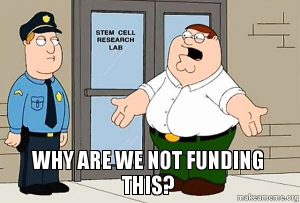
Of course, the sad reality is, even if we make this collective realization and begin acting today, the 2017 numbers for crime overall will still likely see an increase – probably around 13-15% – a heartbreaking number. This conjecture is backed by the SPD crime comparison reports. When the end of the year comes and all the news stations report this increase, we shouldn’t be shocked, we should be as angry with our leadership as we are with the people who committed crimes.
In the immediate timeframe, police are an important part of deterrence and catching those who commit crimes. Shreveport’s police are underpaid and, until recently, were using 15-year-old patrol vehicles with broken windows and rotting floorboards. The mayor is rightly suggesting we re-examine police pay, but her focus on law enforcement and omission of the bigger picture during these briefings is detrimental to creating an environment where crime is not just be addressed after it happens but prevented from ever happening at all.
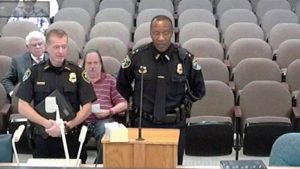
Crime, economy, and education are all connected, yet Shreveport leaders have not stood up and said word one about it in any press conference or release about crime this year. Of course, education is not under city control, but finding opportunities for real improvement in the economy through tax structures and good old-fashioned prioritization would be nice. The Shreveport leadership should be working with the parish and school board on this issue because it directly impacts the city’s ability to compete in the regional, national, and international markets for jobs.
If we don’t provide for education or work to provide real opportunity for parents to have jobs that allow them to be present in their child’s education and afford things like backpacks and school supplies; if we don’t continue to invest in extracurriculars for families who can’t afford to join a paid sports organization or summer science camp; we are doing this community – taxpayers, local businesses, our neighbors, and, indeed, our children and the future of this city and parish – a disservice.
With that said, concerned citizens on various platforms have asked for a suggested citizen action list to address these challenges. Heliopolis has taken ideas from across the city and outlined what we think can and should be done to work on these issues, starting immediately. We humbly submit these items and welcome counter suggestions and ideas on how to make this list more complete. Ideally, we move on most, if not all, at once:
1) Admitting there is a problem is step one. Everyone needs to demand the mayor and city council acknowledge the reasons crime is on the rise and actually commit to fixing the systemic issues alongside the enforcement work of the Shreveport Police Department.
2) In turn, law enforcement – including Shreveport Police and Caddo Parish Sheriff – must step forward and recognize the same challenge, and must also be transparent about how increases in staffing and extra man hours can only do so much unless we address the root problems.
3) As a community, we must engage in social entrepreneurship and meaningful interaction on building local jobs, invest in job training programs, and make better connections between businesses and the community. See Elizabeth Beauvais’ recent Heliopolis article.
4) Revamp education from the ground up. Something with a focus on careers, not just college. Ford Next Generation Learning (Ford NGL) is a perfect place to start and is a group willing to come into the community for free to facilitate the change which is being used in cities across the country to improve attendence, behavior, information retention, and valuable and marketable skills.
5) Economic development. We must increase jobs – good paying and fulfilling jobs. We need to recognize that jobs don’t just come from monolithic builds like an arena, but do come from local stores, shops, and other small businesses that can create a foundation for us to grow sustainability as an economy. As a part of this effort, we must call on the City, academic and economic development community, to research what capacity we need to develop (training college grads, workforce dev., etc.) in order to be competitive for larger employers if and when they become available. Having a stable, self-sustaining economy, an educated and capable workforce, and complete city infrastructure can make us attractive without having to roll out the tax break welcome mat.
6) We need to take a serious look at how we address mental health in the community; better access to personal care facilities; and better training for law enforcement to recognize mental illness in the citizens they encounter. We also need to support organizations like Prevent Childhood Abuse Louisiana and programs that provide access to people who are struggling with depression, trauma and abuse, neglect, etc.
7) Community organizing deserves a boost. We need more camps and programs for kids and adults during the summer and on the weekends throughout the year. We’ve got to get people to care about their neighborhood, their neighbors, and those in tough situations have easy access to help instead of choosing to commit crime. There are organizations and community groups out there doing this work. What can we do to help them?
8) We must stand united. This is where most of the action is now: conversation. There have been coffee meetups and online chats, and we need to keep that going. Conversation and a unified voice in demand of an agreement with a set of goals is an important part of the equation. We need the next generation, millennial and Gen Z, to step up and take ownership of their city. We must connect black and white Shreveport. Rich and poor Shreveport. We must work with current leadership who are open to change, and we need to elect new leaders to emerge when existing leadership chooses to maintain the status quo. We must come together as a city unified behind a vision of giving people the bootstraps to pull themselves up by and removing roadblocks for all to chase their goals and reach the best version of themselves.
To communicate with me about this list and to share information on how we can collectively achieve the goal of helping Shreveport reach a new path of progress and prosperity, please reach out to chris@heliopolis.la.

